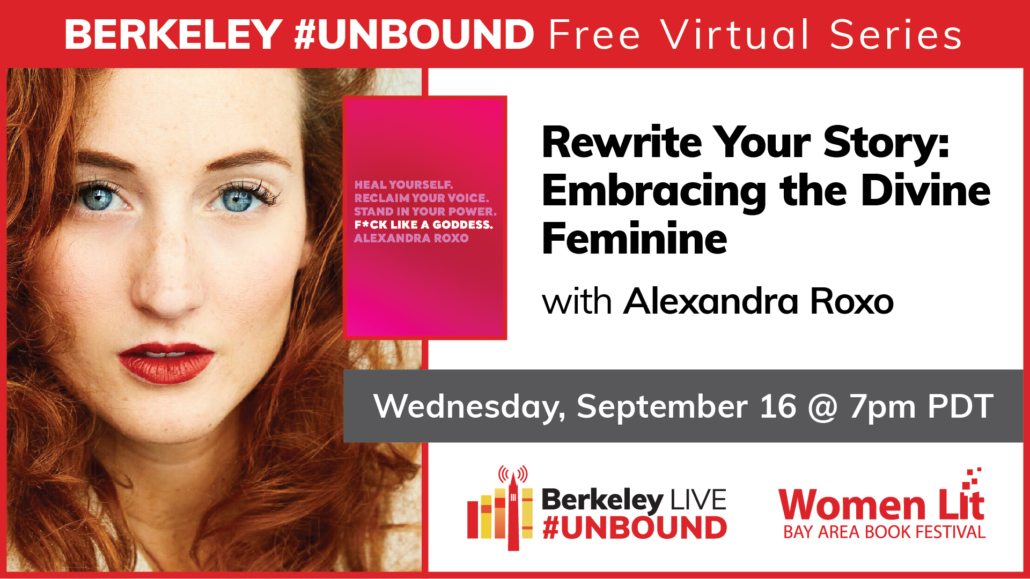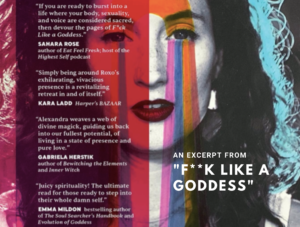Turning Pain into Passion
Rewriting your story, awakening to your power, and overcoming inner resistance to change
with Alexandra Roxo, author of F**k Like a Goddess
Don’t miss the free premiere of Alexandra’s #UNBOUND event with Carol Queen, “Rewrite Your Story: Embracing the Divine Feminine,” September 16 at 7 pm. After the premiere, it’ll be free to watch on our YouTube channel indefinitely!
The live recording of our July 29, 2020 event with Alexandra and Carol was made available exclusively to our Women Lit members, who had the opportunity to interact with each other and ask Alexandra and Carol questions in real time.
Women Lit is a year-long, exciting literary sisterhood of women who bond over books while receiving great perks like exclusive and early access to live events, discounted tickets to our hottest conversations, and (in non-physically-distanced times) in-person intimate receptions with authors in stunning venues and private homes across the Bay Area.
Join Women Lit today and be part of the magic!
“I like to use my stories to show examples of how our impediments can be overcome. All this conditioning we get about only being lovable if you’re XYZ: we can redirect that.
We can alchemize it into something beautiful and strong.”
—Alexandra Roxo
Transformational healing coach and author Alexandra Roxo didn’t plan on her first book coming out in the middle of a pandemic. But her life’s journey has never really gone according to plan. Leaning in to unpredictable opportunities for growth has given her the resilience and adaptability to unapologetically make her own way—and to advise other women how to make theirs.
“In a way,” Alexandra says, “it’s fitting that this book is coming out not just during a pandemic, but in the midst of a lot of civil unrest. It’s all about how all of us have the innate power to impact our reality. But first, we have to de-commission the old traumas and preconditions that make us scared. Now, the world depends more than ever on our doing this work: there’s a social responsibility to show up in the world as a fully present person—to see clearly and to take action.”
We talked with Alexandra about the myths we tell ourselves that hold us back, the discovery inherent in the act of storytelling, and the real meaning of the “f-word” (dare we say it’s more wholesome—and more multifaceted—than one might assume!).
Women Lit: Let’s talk about the elephant in the room: the word f**k. What makes it so evocative, in both good and bad ways? And what made you give it top billing in the book’s title?
AR: It means so many different things in our vernacular. It’s used as an intensifier, it’s used to connote connection. It’s visceral, not mechanical or clinical or overly sweet. Part of what I’m interested in is reframing that word. For me, f**k signifies two elements coming together to become something totally new. That’s the energy of it: two things clashing and smashing together to create a magical surrender to something greater. It’s about coming into divine communication. It implies a union. To ‘f**k with’ something means to really engage with it, to go beneath the surface in a way that’s profound and fearless. That’s not just the energy we should bring to sex; it’s the energy we should bring to living.
WL: In the book, you acknowledge that we all have our traumas and hardships. We’ve all internalized, to some extent, harmful messages that undermine our ability to be that fearless, to engage that deeply. A lot of the exercises you give in the book are focused on overcoming our own sense of resistance to change and risk. If we’ve had a lot of hurtful experiences, how do we tell the difference between “good” resistance—resistance that’s legitimately self-protective, and warranted—and the kind of self-sabotaging resistance that prevents growth?
AR: It’s important to ask yourself, is this an edge of growth I’m coming up against, or is it an edge of safety? The way we learn is by making mistakes. We learn about feelings via trial and error. And if you lean into your fear and examine it, you can begin to learn the difference between a healthy edge and an edge that signals “don’t do that.” It’s about trusting your own physical cues; a lot of us are never given permission to listen to ourselves enough to do that. But when we mistake discomfort for that “fear voice,” that’s when we collectively stay in stasis. We must be sovereign in our decision to discern between what’s scary and what’s growth.
WL: You write a lot about the power of storytelling: not only in the sense of learning how to rewrite and retell all the harmful belief systems we’ve adopted, but about literal people’s stories—the importance of hearing them, making a space for them, honoring them. Earlier in your career, you told stories via filmmaking. Now, your storytelling takes a very different form. How did you transition between those different forms of storytelling?
AR: I’ve always been fascinated by stories and myths, especially ones about female sexuality and spirituality. I’ve been especially interested in how the female experience has factored into the collective narrative: particularly the one I got growing up in the South. When I got older, I studied playwriting and storytelling via photography; both were about feelings for me. There was healing in that sense of visually creating concrete change and disruption in narratives. And that work led me toward creating a web show about creative exploration called “Be Here Now-ish” [VICE called it “a hyper-queer, spiritual, comic web-series”]. And I just kept telling stories, and eventually I realized that the stories were a way of alchemizing pain and trauma, of turning it into something else. They can be tools for healing. And I’ve learned, through my workshops and retreats that use storytelling, that a roomful of women telling stories is deeply powerful. So many women have been through the same kind of things.
WL: What women-centered stories or myths have been most formative to your own work?
AR: The Greek myth of Persephone and the pomegranate! I actually made a short film about that myth. It’s an oldie but a goodie. I also love the story of Mary Magdalene: the varying mythologies of who she was and what she did. Another favorite is the Babylonian myth of Inanna [the ancient Sumerian goddess of love, sensuality, fertility, procreation, and war]. I love the stories of transformation: descending into an underworld, into something that’s dark and scary, and then being transformed. For women, if we don’t face our own underworld, we stay small; we don’t rise. That’s why I love those stories. There’s a fall, but then there’s a rise.
In this excerpt, Roxo traces her path from documentary filmmaker to transformational healing coach, and explores how the act of women’s storytelling has been central to both pursuits.
The seeds of this path were there in my early career as an artist and filmmaker, when I set out, at the age of eighteen, to study life. But what I really wanted to discover was what it means to be a woman. I was curious about why women’s stories had been left out of most of the spiritual texts across the globe. Why no one was talking about how many women experienced sexual assaults. Why women were expected to diet and starve themselves or to change their appearance in other ways to be accepted. I was very confused about how this was all okay! Not to mention I was pissed. So I set out to make art that questioned why and how we got this way.
It was a path that led me to travel to Cuba and meet Fidel Castro’s family. That found me filming dead bodies in morgues. There was the time I went undercover in brothels in New York City and worked with women who’d been victims of sex trafficking. There was the project where I traveled to a truck-stop strip club in New Mexico and lived and worked with the dancers there. Where I danced for men in my Converse sneakers and cotton undies and shot machine guns in the desert. Another where I spent two weeks living with girls on the streets interviewing them about their choices to live their lives on the fringe.
As I moved through these worlds, naïve and wise at the same time, I learned that underneath, as women, we are very similar. We all hurt. We all love. And we all have been through a lot of shit! Rich and poor, brown and white, straight and queer. Not to say we are the same or to downplay one culture’s experiences of oppression or trauma, but indeed there is a thread that connects us.
I saw that many of us have been told our sexuality (however we identify) is too much for the world, that we need to be pretty in order to be lovable, and a whole slew of other things that seem designed to keep us separated from who we truly are. And I also saw that the act of sitting together and sharing stories was a way that we healed once before and that we needed to get back to. That when we cried together, ate together, sang together, and danced together, like the ancient people did, it worked.


